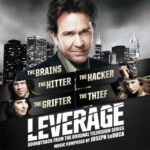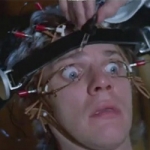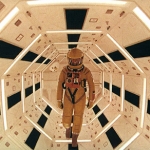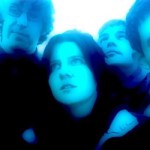John Frizzell, the composer of the original score for the upcoming movie Legion, was kind enough to answer a few questions about his process and what influenced him while creating his most recent score.
Summer Suzuki: How did you get your start?
John Frizzell: I won’t cover everything here (there is a longer version on johnfrizzell.com in my bio section) but basically I was a singer as a little kid. I sang at the National Cathedral in D.C and did chorus work with the Metropolitan Opera Company and Paris Opera Company before becoming a terrible singer when I got a little older. I played rock guitar in my early teens and became obsessed with jazz guitar before studying at USC Music School and Manhattan School of Music. After my studies I worked in a recording studio and learned syntheses really well and got to work with Ryuichi Sakamoto. After moving to L.A., James Newton Howard helped me really get going in film scoring. My first big film on my own was Beavis and Butt-head Do America.
SS: Were you always interested in composing movie/television scores?
JF: No. I became interested when I was 24 and worked with Ryuichi Sakamoto as an orchestrator on Oliver Stone’s mini-series Wild Palms. I was totally hooked at that point and knew that scoring to picture would be my thing.
SS: How closely do you work with the director when composing scores?
JF: I view myself as a collaborative member of a filmmaking team. So I work very closely with the director and producer(s), editor, and studio. I am really big on experimenting and I usually keep trying new versions even when the whole team has already approved it all. Part of getting things going with a director is inviting them into the process by establishing a method of communicating about music that is comfortable for the individual. For instance, I have worked on two films with Mark Rydell, who went to Juilliard, and our discussions were always very literal about this instrument or the tempo, etc. But music is a very challenging thing to talk about (we all know the quote “talking about music is like dancing about architecture”) so I encourage a director to start with talking about emotions they need the film to project and, more specifically, the emotional state we want the viewer to be in at any given moment of a film to tell our story. Ultimately, that is what we are doing, telling a story. It is very important to never lose sight of that.
I find that as great communication develops, new words describing the score come about and we are able to speak in a sort of shorthand about the music for the film. Another important communication tool I use is body language. Often I can tell exactly what a director thinks of a cue I have written just by watching them listen to it in the film. And when we are with a preview audience it is really easy to tell the mental state of the audience as a group by how they are sitting or moving or not moving, I have learned to tell when we have them feeling what we need them to feel.
SS: Does it depend on the type of director or project?
JF: Again, the process evolves for each person and project but the intention stays the same.
SS: Do you prefer having more or less input from the director?
JF: More is better but channeled in a productive way. It is really my job to create that environment for healthy creative input and I put a lot of energy into that. I have a hell of a lot of fun doing my job, so I like to work in an environment where I can experiment and even fail at things and really go out on limb. Often I have to find “the edge” of what a scene or film can handle and I usually have to cross the line before I know exactly where it is. I end up writing many versions of each cue. Sometimes the director doesn’t even hear anything until I am on version four or five. I constantly experiment. I also put a lot of focus on thinking across the whole film rather than being scene centric. Sometimes what is best for a film is not the best thing for a scene! And this is precisely the time to remember we are telling a story, and whatever is best for the whole story is best.
SS: How is the process for composing for movies different than composing for TV?
JF: Well I haven’t done much TV lately, but the schedules are really intense. I am constantly amazed by guys like Sean Callery (24) who make such great stuff happen in such a short amount of time. I guess time is the big difference. I have scored many films on very, very short schedules. But it is still weeks and not days I am dealing with.
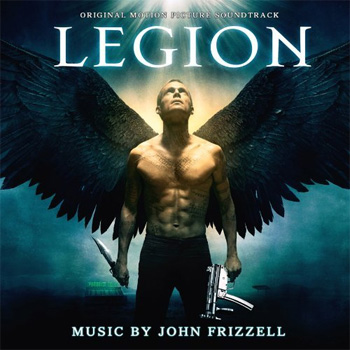
SS: Your work is pretty diverse. How do you keep your work so fluid, being able to change from genre to genre without it all sounding similar?
JF: Well, I hope that is true! I really strive for that. I believe a score should be a character in the film and have a personality. I like the idea that when writing a score it often starts with a core concept or idea. For instance, Goldsmith’s score to The Boys from Brazil uses Viennese Waltzes to get really disturbing. Morricone’s The Good, the Bad and The Ugly emulates sounds from the environment of the film in its score. These are bold ideas that contribute to brilliant work. I am also constantly playing with technology to create new things, like the use of what I call “Frozen Sounds” in Legion. I make these by taking a very short acoustic recording and stretch it with software to 30 or 40 seconds in length. The result is something which is both synthesized and acoustic.
SS: What inspired or influenced you for the score to Legion?
JF: Scott Stewart’s amazing visual sensibility. When Scott showed me the scene with Gladys (the little old lady in the trailer) I freaked out. I had never seen that before. Scott had great ideas for sound that slowly grew out of our conversations, trial and error. Legion is a very complex score. It was a thrilling challenge to create.
SS: What are you a fan of?
JF: Barack Obama. Pugs. Hard Productive Work. Films. Steve Jobs. Led Zeppelin. Vacations. And really good sushi.
Many thanks to Mr. Frizzell for taking the time to answer a few questions for us! The score for Legion is out January 19, 2010 and the movie will be released in theaters January 22, 2010.


